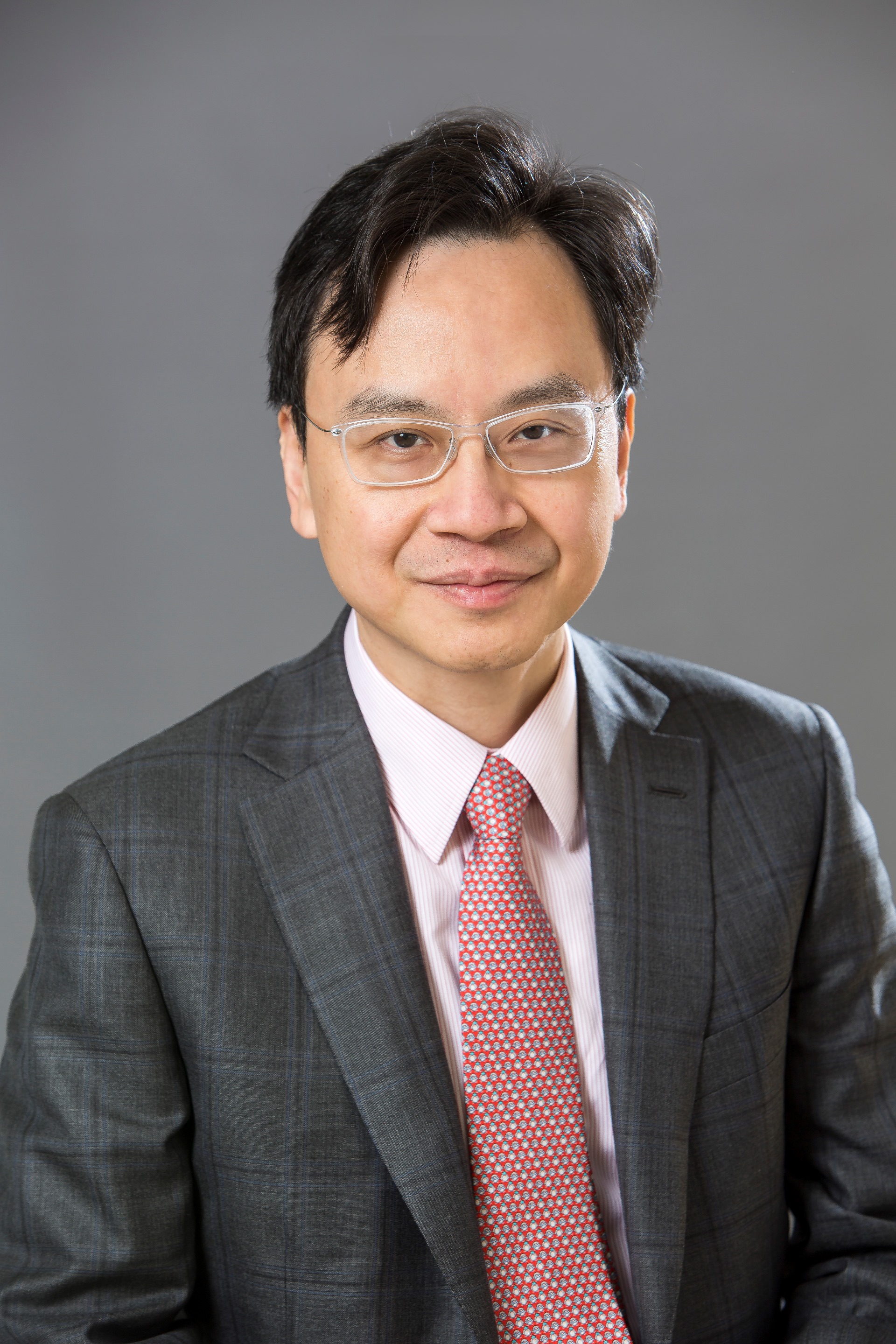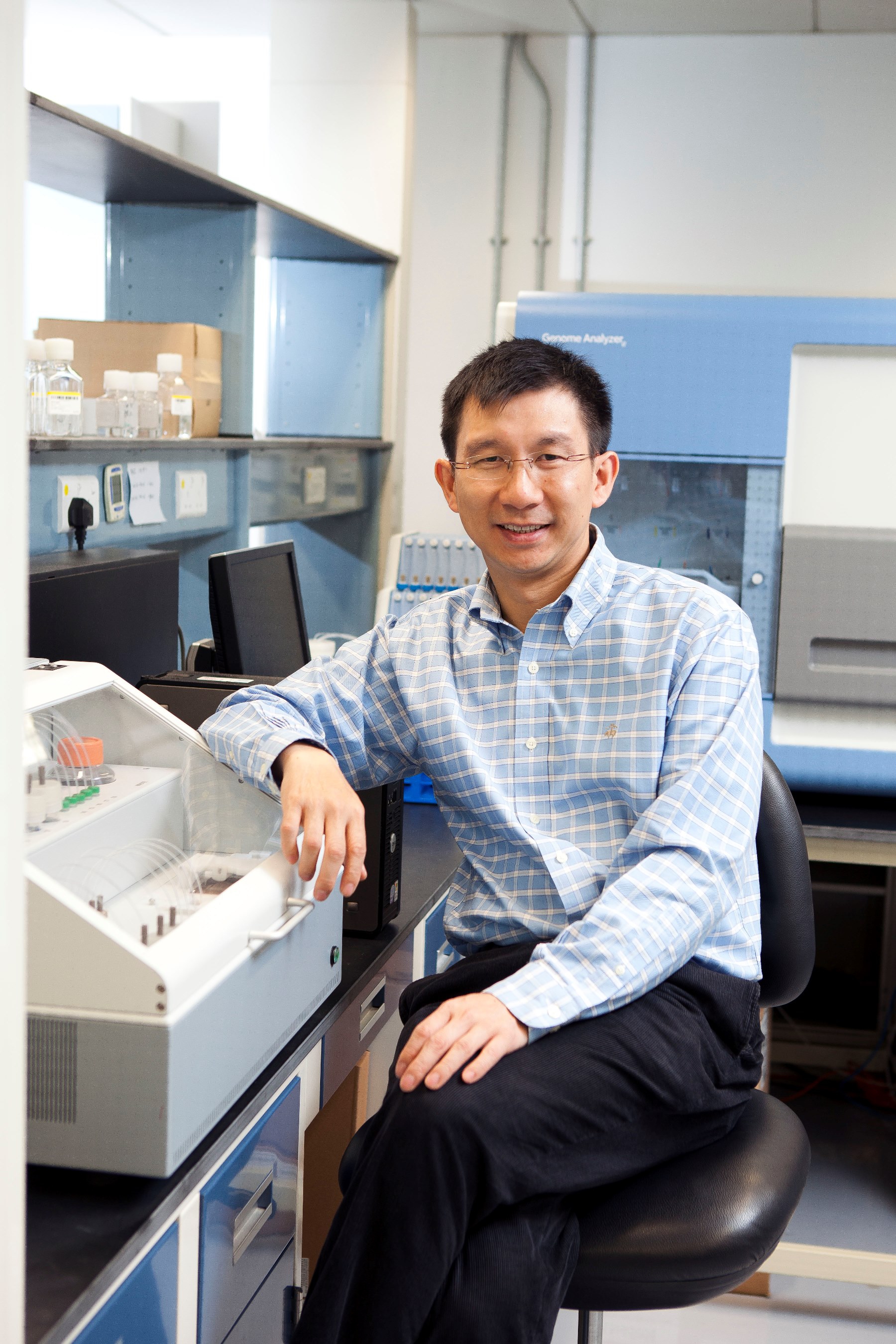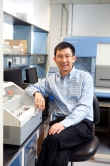CUHK
News Centre
CUHK Research Receives Recognitions by Top Medical Journals
Two studies led by professors in the Faculty of Medicine at The Chinese University of Hong Kong (CUHK) are among the ten most “Notable Articles of 2017” selected by a top medical journal, The New England Journal of Medicine (NEJM). These two papers are also the only studies on the list that are led by researchers based in Asia.
Two CUHK research papers selected as “Most Notable” in 2017 by NEJM
NEJM is the world’s leading medical journal which receives an average of 5,000 research submissions each year and publishes only the top 5%. From among all papers published in 2017, the editorial board has picked ten papers which they found the most meaningful in improving medical practice and patient care to the world. Only two of the ten listed studies are led by Asian scholars and both of them are from CUHK Medicine.
The first selected CUHK paper is “Osimertinib or Platinum–Pemetrexed in EGFR T790M–Positive Lung Cancer”, a multinational study led by Prof. Tony MOK, which transformed the practice of lung cancer treatment and marked a new milestone in personalised medicine development for lung cancer.
The study suggests that for patients whose cancer genes further mutate and develop resistance after first-line epidermal growth factor receptor (EGFR) targeted therapy, a new treatment can double the progression-free survival when compared with standard chemotherapy.
Prof. Tony MOK, Li Shu Fan Medical Foundation Professor of Clinical Oncology and Chairman of the Department of Clinical Oncology at CUHK Medicine remarked, “From now on, lung adenocarcinoma patients need to be continuously monitored on how the cancer ‘evolves’ in their bodies. Once the disease progresses in first-line treatment, further mutation tests should be considered to customise the treatment. I and my research team are deeply encouraged to learn that NEJM editors found our study meaningful in improving medical practice and patient care. We will continue to strive to further our contribution to lung cancer treatment.”
The other selected paper is “Analysis of Plasma Epstein–Barr Virus DNA to Screen for Nasopharyngeal Cancer” led by Prof. Allen CHAN and Prof. Dennis LO. This is a landmark study on over 20,000 people which demonstrated that plasma Epstein-Barr virus (EBV) DNA analysis is useful for screening early asymptomatic nasopharyngeal carcinoma (NPC).
Prof. Allen CHAN, Professor, Department of Chemical Pathology at CUHK Medicine, felt grateful about the NEJM selection, “This recognition given by NEJM editors is very significant and meaningful to us. By using this non-invasive DNA screening technology, NPC patients can be identified at significantly earlier stages, when there is a much greater likelihood of successful treatment. We sincerely hope our study can help NPC patients to receive more timely and effective treatments.”
Prof. Dennis LO, Director of the Li Ka Shing Institute of Health Sciences and Chairman of the Department of Chemical Pathology at CUHK Medicine, world-renowned for his discovery of the presence of cell-free fetal DNA in maternal plasma, has been working to apply circulating DNA analysis for screening early cancers. He said, “We are honoured to have our study published in NEJM and chosen as one of the Journal’s most notable articles of the year. This study has demonstrated the potential of circulating DNA analysis for screening early NPC. We will continue to develop this technology to develop screening tests for other types of cancer, and to benefit more people.”
CUHK Medicine strives for medical advances to benefit societies and patients
There are several studies led by CUHK scholars with notable scientific achievements in 2017. Their research has changed the understanding of important diseases and set new therapeutic directions.
To name a few, we have Prof. Francis CHAN’s study published in The Lancet addressing the choice of non-steroidal anti-inflammatory drugs (NSAIDs) in high-risk patients with cardiothrombotic diseases and arthritis after upper gastrointestinal bleeding; Prof. Siew NG’s systematic review in The Lancet about the worldwide incidence and prevalence of inflammatory bowel disease in the 21st century; and Prof. Tony MOK’s another NEJM paper that establishes a new standard for first line therapy for ALK-positive lung cancer. In a scientific discovery study published in Nature, Dr. Jason Tsang and his collaborators have created Expanded Potential Stem Cells (EPSCs) in mice, for the first time, and the methods used are also feasible for other mammalian species which have significant implications for human regenerative medicine and for understanding developmental disorders; while Dr. Liona POON showed that low-dose aspirin reduces the risk of preterm preeclampsia in a trial published in NEJM.
Prof. Francis CHAN, Dean of the Faculty of Medicine and Choh-Ming Li Professor of Medicine and Therapeutics at CUHK stated, “2017 was a prosperous year for the Faculty of Medicine. I am glad to see we have many outstanding researchers here who continue to push forward their own fields and strive to translate scientific discoveries into medical advances that benefit societies and patients. They have achieved many regional and world firsts in medical research and the development of advanced medical technologies. Thanks to all the contributions and efforts of our teachers and researchers, we are encouraged by being ranked among the world’s top 50 medical schools in this year’s QS international ranking with only a relatively short history of 35 years since foundation. We look forward to further scientific advances from our researchers and even greater achievements in the years ahead.”
About The New England Journal of Medicine (NEJM)
The New England Journal of Medicine (NEJM) is the most widely read, cited, and influential general medical journal and website in the world and the oldest continuously published medical periodical. More than 600,000 people in 177 countries read it each week.
NEJM is considered the “gold standard” for the latest research and best practices in medicine. The most recent (2016) impact factor for NEJM is 72.406, the highest among general medical journals.
NEJM receives an average of 5,000 research submissions each year and publishes only the top 5%.







